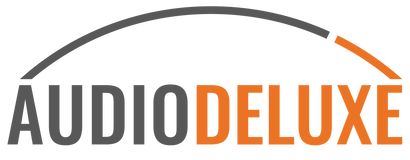Your Cart is Empty
Softube Mutable Instruments Braids
Astonishingly sophisticated sound-generation.
$45.00
Description
- Macro oscillator featuring 40+ fully-realized digital synthesis algorithms.
- Produce millions of different sounds easily — classic waves and telecoms babble, bells and whistles, percussion and ambience.
- Awesome for crazy complex waveform synthesis.
Braids, by French Eurorack pioneers Mutable Instruments, is not an oscillator.
It sort of looks like one, with fine and coarse pitch/frequency controls, a v/oct input, and voltage-controllable tone/timbre controls.
It even sort of sounds like one, in as far as it outputs audio.
Mutable Instruments call it a macro oscillator, but even that is an understatement. It’s a hugely sophisticated digital synthesis engine, able to produce and manipulate complex sounds by means of 45 or so fully-realized synthesis algorithms, featuring multiple oscillators, wavetables, filters, VCAs, ring modulators, and so on under the hood.
Any Sound You Like
Classic waves from vintage synths, bells, resonant filters, plucked and bowed strings, vocals and vowel/formant sounds, wind instruments, percussion, noise, granular clouds and more.
Meta-Parameters
'Timbre' and 'Colour' controls affect multiple different parameters per mode, morphing through all the sweet spots and ensuring every sound is lush, gorgeous, and useful.
Built-In Envelope
Using the trigger input and built-in AD envelope, each algorithm can even become a self-contained synth voice. No other modules required.
Digital macro-oscillator
In a sense, Braids can be looked at as both an encyclopedia of classic synthesis techniques, and a tool to bring them into the present-day, with tremendous sound-quality and ease-of-use to match.
Each mode represents a different, essential, and beautifully realised synth technique, with often very complex meta-patching going on behind the scenes. One, for example, features seven stacked and de-tuned sawtooth waves, while another passes a single oscillator waveform through a variable filter matrix to simulate vocal formants.
Incredible variety of sounds
Braids can produce an extraordinary variety of sounds, from 808-style drums to bowed strings, from bells and gongs to humanoid vowels, and from trance leads to Moog-ish basses. There's almost nothing this module can't do, especially in combination with other modules in your Modular system.
And what's more, it offers unprecedented ease-of-access to these sounds, with the heavy-lifting of the initial patch creation happening under the hood. All you have to do is select a mode, and use the two tone controls to find the precise flavor you want.
In short
- Made for Modular, Softube's Eurorack platform. Learn more about Modular
- Macro oscillator featuring 40+ fully-realized digital synthesis algorithms
- Produce millions of different sounds easily — classic waves and telecoms babble, bells and whistles, percussion and ambience
- Just two controls morph through the sweet spots of each algorithm
- Great for triggered percussion
- Awesome for crazy complex waveform synthesis
- Phenomenal for glitchy out-of-control modulated sounds
- Incredibly deep, but easy to use
- It’s like a library of the greatest synth sounds of all time
- Dive deeper: Mutable Instruments' own information on the hardware / Bob Borries’ excellent unofficial diagrammatic manual / A comprehensive video runthrough from Future Music
Tech Specs
System Requirements
- macOS Ventura 13, Sonoma 14, Sequoia 15
- Windows 10 (64-bit), Windows 11
- Softube account
- iLok account
- Computer with AU, VST, VST3, and/or AAX-compatible DAW host software
- Internet access (for downloading installers and managing licenses)
Supported CPU Families
Apple macOS computers with Intel Core i3/i5/i7 or Apple silicon (M1 or newer) CPU. Apple silicon is supported natively.
Windows computers with quad-core Intel Core i3/i5/i7 or AMD quad-core processors with SSE 4.2 support.
Other Intel processors (Celeron, Pentium, and Xeon) are compatible if they support SSE 4.2 instructions.
Supported Host Software (DAW)
Any 64-bit VST, VST3, AU, or AAX (Pro Tools 11.0.2 or higher) compatible host application should work. However, due to plug-in host differences between DAWs—and our rigorous standards—we only officially test our plug-ins and instruments in the most recent versions of Pro Tools, Logic Pro, Cubase, Ableton Live, Studio One, and Reaper. Softube plug-ins are not tested regularly in non-listed systems. They will likely work if the system requirements are met. However, we cannot guarantee a solution for issues in unsupported systems.
We strongly recommend using VST3, as some of our plug-ins have features that are not present in the older VST format. Supported sample rates: 44.1, 48, 88.2, 96, 176.4, and 192 kHz, in both mono and stereo. The most recent maintenance release of your DAW application is recommended. AAX DSP is not currently in active development. TDM/VENUE/RTAS are no longer supported. See our Legacy Installers.




